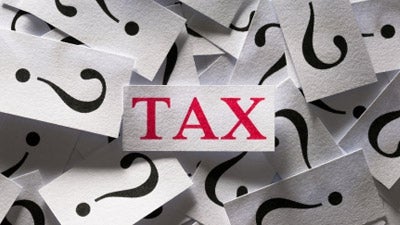Home > Finance > Tax and Accounting >
Is Your Small Business Victim to These Tax Myths?
By: Dave Symmonds

If you’ve ever gotten the chance to take a look at tax laws and codes, you might have found your head a little dizzy with all the things you can and can’t do. And even many of the IRS tips aren’t always clear, since some laws will go away and others will come back. Unfortunately, this also means that a lot of myths get tossed around, especially in an age where people don’t always fact check the things they dig up on the Internet.
The worst part is that many small businesses don’t have a full-time accounting department, which means you might even have to do the taxes yourself as the owner. So be careful to avoid some of the following, or else you might wind up needing a lawyer.
Myth: You Don’t Have to Pay Taxes
This has to be one of the most common myths that gets passed around the Internet, with the IRS even attempting to debunk it on multiple occasions. The idea behind it is that in the tax code it states tax involvement is “voluntary,” so people think they can just opt out of paying taxes. Really, it was a poor choice of words on the IRS’s part, but it simply means tax paying is based on a system that lets you submit what you believe is the amount you owe in taxes instead of the IRS sending you a bill every year.
Myth: You Can Write Off Any Entertainment Expenses
As a business, you do have options to be able to deduct some entertainment expenses. Under most cases it is very specific though. Only certain entertainment options are allowed, and in the case for food and drink it’s generally only ever up to 50%. Also, what is considered a business entertainment expense largely comes down to whether you are with a client, employee, or customer, and if you can connect that entertainment to your business. Really, if you aren’t sure you are best to just not claim it as a deduction.
Myth: A Home Business Can Deduct the Entire Home
When you run your business from your home, things can often get a bit muddy in terms of what you claim for your business and what is claimed for personal expenses. Or at least you would think, but actually there’s a clearly defined line for this kind of situation. Anything that is only used for work and nothing else can be deducted for business. If you also use your office at home as a guest bedroom for when people are over, then it can’t be counted as a business expense. When in doubt just don’t deduct it, because it’s up to you to prove that you only use something for business if you are audited.
Myth: File Extension Means Payment Extension
This is another one that is a good tip for personal taxes as well as business ones. Any time you obtain an extension for filing your taxes, that does not mean you also obtain an extension on taxes you have to pay (if any). It seems odd, because how are you supposed to know what taxes you owe before finishing the filing of it? But that’s where an estimate of what tax you owe comes in, and it’s actually one of the ways you work to file an extension for the filing.
Myth: Hiring Employees as Contractors Will Save on Taxes
This is a common one because it’s not technically illegal, in the sense that you are completely allowed to hire a contractor to handle a specific duty, and you won’t have to pay employment taxes for them. But there are strict guidelines on what a contractor means and what an employee means, and not following that can get you in major trouble, considering it is tax evasion. A good rule of thumb is a contractor should only ever be temporary, an employee should be expected to be permanent.
Myth: Buying Equipment for Work Gives You Tax Breaks
This is always one of those things that people tell you to do when they don’t know how to do math. The idea is that since equipment for work can be deducted on your taxes, buying more equipment can eliminate more of your taxable income with your business. While it is true you can claim most equipment for your work as a deduction, it’s almost never 100% of the cost of the equipment. In fact often times it’s less than 50%, because most of your equipment is depreciable. This means you often spend far more than you would have on just paying the taxes. Really, just stick to buying the things that you actually need for the business. And that doesn’t include your Ferrari.
If you ever aren’t sure on something a friend tells you about your taxes, always make sure to check the IRS site. If you can’t find the answer there, look to someone who is supposed to know tax laws before deducting anything on your taxes.
Published: December 13, 2013
3254 Views
3254 Views












